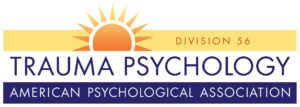Who’s Who: Duane D. Booysen, PhD
Duane D. Booysen, PhD
Clinical Psychologist and Senior Lecturer
Formal education: PhD (Stellenbosch University, South Africa); MA in Clinical Psychology and Community Counseling (Stellenbosch University)
Areas of expertise/interests: Implementation of trauma-focused psychotherapies for PTSD in low resourced communities characterized by poverty and community violence.
Self-care activities: I do moderate weight training and cardio activities, some gardening in my yard at home, reading and watching documentaries, and spending time with my wife and family.
What led you to this field and/or career path?
My primary interest is in evidence-based psychological treatments. I found it to be important that as a discipline and profession we conducted the necessary research to understand the validity and reliability of psychological interventions. Then, my PhD advisor had done research on evidence-based interventions (EBIs) and had a focus on trauma and PTSD, and that was my introduction to the field of EBIs and traumatic stress. As a South African, and considering South Africa’s history of political and social violence, I think my work in the field of traumatic stress has a great deal to offer countries such as South Africa in order to understand and ameliorate issues related to trauma.
What was the most interesting thing that you have learned in your career?
I still consider myself an early career psychologist, so I hope there will be a lot of interesting learnings still to come in my career. At this stage of my career, it is clear that access to effective trauma-focused therapies, especially in low and middle-income countries, are still sparse. I think a great deal of good work has been done to accrue the knowledge and evidence we have regarding the assessment and treatment of PTSD, yet this knowledge must still be adequately disseminated and implemented in the majority world. Therefore, and in an exciting manner, we still need to do a great deal to disseminate and implement (and further research) trauma-focused treatments in a collaborative manner within different communities across the globe.
How do you keep your life in balance?
It’s a constant work in progress to maintain a balance. I love what I do as a clinical researcher, therefore, I can at times get caught up in the excitement of my work. Yet I have come to learn that I cannot do what I love doing if I am not healthy. Therefore, I take planning for vacations and hobbies as seriously as I take doing my work.
What advice would you give to someone starting out in your field?
Explore and work on questions and problems that will excite you, give you meaning, and contribute to the broader society. Then, surround yourself with good people – you have to find the good people in the field. Lastly, commit to doing good science that will benefit society.
What are your future plans and goals?
To continue disseminating and implementing empirically supported trauma-focused treatments in low resourced communities. I think it’s important to understand how treatments such as Prolonged Exposure (PE) can work within resource-constrained communities, and whether these treatments can be adopted within low resourced communities and health systems. I also plan to continue building collaborations across the world to make this work possible and accessible to all persons who need it.
What else would you like us to know?
I love what I do as a clinical researcher and to know that the process of producing knowledge is infinite excites me. I hope to meet and work with many more intelligent and passionate people within the field of traumatic stress.
“I love what I do as a clinical researcher and to know that the process of producing knowledge is infinite excites me.“
Submit a Who’s Who nomination on TPN’s online submission form
